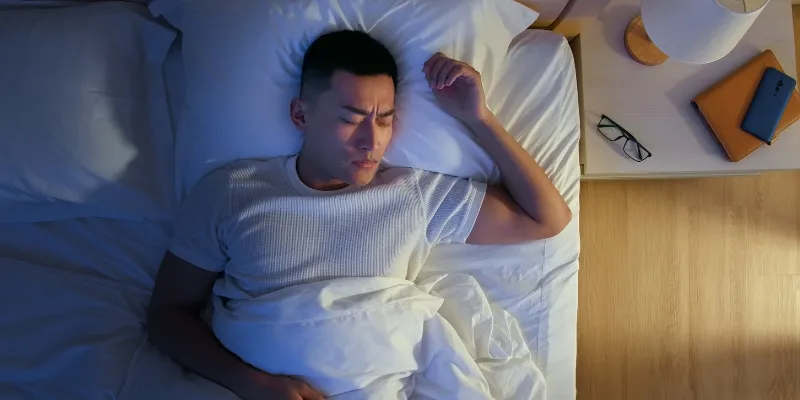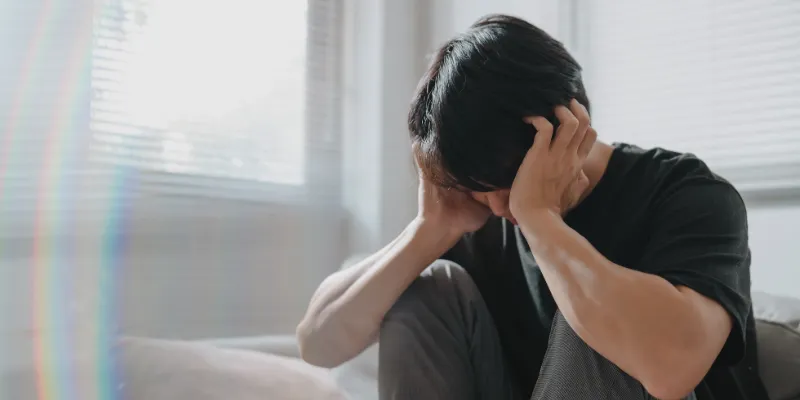Is Having Trouble Sleeping a Sign of a Mental Health Issue?

Are you getting the rest you deserve, or do you often struggle with sleep? Having trouble sleeping is a frustrating and exhausting experience, as it usually leaves you feeling drained and irritable the next day. You think it is probably because of stress keeping you up all night, or you caved in and helped yourself to a nice cup of late-night coffee, but constant sleep problems can be your body’s way of signalling something more serious. The connection between sleep and mental health runs deep; a restless night may be more than just a passing issue. You should take note if your sleep troubles persist.
What mental health issues have trouble sleeping as a symptom?
If you have trouble sleeping at night that disrupts your daily functioning, it does not automatically mean you have a mental health issue, but it is a common symptom among multiple types of mental health issues. Suppose you experience different symptoms accompanied by trouble sleeping that resemble certain mental health issues; in that case, it is important to take note and consider seeking help from your loved ones or a professional. Here are a few mental health issues that include trouble sleeping as a symptom:
Depression
Depression, also known as depressive disorder, is a common mental disorder involving a depressed mood, loss of pleasure, or interest in activities for long periods of time. It differs from usual mood changes and feelings about daily life. Depression can impact all aspects of a person’s life, including their relationships with family, friends, and the community. The disorder can be caused by or cause issues at school or at work. Depression can occur to anyone in life, particularly to people who have gone through abuse, serious losses, or other stressful events. Women have a higher likelihood of developing depression than men, but this does not mean we should take men’s mental states lightly, either.
A person experiences a depressed mood (feeling sad, irritable, empty) during a depressive episode. These episodes differ from normal mood fluctuations, and they persist most of the day, almost every day, for two weeks at least.

These are some other symptoms of depression, which may include:
Difficulty concentrating.
Feelings of extreme guilt or worthlessness.
Having no hope for the future.
Having dying thoughts or being suicidal.
Sleep disruption.
Appetite or weight changes.
Feeling very tired or having low energy levels.
Generalised anxiety disorder (GAD)
Generalised anxiety disorder (GAD) is primarily characterised by uncontrollable feelings of stress or worry that interfere with your everyday life. Below are some other symptoms of GAD, such as:
Difficulty sleeping.
Feelings of restlessness, irritability, or finding it hard to concentrate.
Feeling tired easily.
Having tense feelings.
Stomach issues.
An unusual or irregular heartbeat (palpitations).
Feeling lightheaded or dizzy.
Having a low mood or depression.
There are also different types of anxiety disorders, and it is common to have more than one anxiety disorder at the same time. These examples are:
Bipolar disorder
Bipolar disorder is a mental health condition where a person's mood can swing from one extreme to the other.
A person during a manic episode experiences a very high mood with high levels of energy (feeling very happy, excited, and overactive). They may have a sense of euphoria, abrupt changes in mood, or an excess of emotion, such as laughing uncontrollably or feeling more irritable, agitated, or restless than usual).
The shifts in mood and activities in manic episodes are accompanied by other characteristic symptoms, which may include:
Highly exaggerated sense of self-worth or self-esteem.
Speaking rapidly and quickly—changing from one idea to the next.
Having difficulty concentrating and getting distracted easily.
Reduced need for sleep.
A reckless or risk-taking behaviour, for example, overspending, risky sexual activity, drinking, or harming yourself or others.
Stubborn and mistaken grandiose or persecutory views of something false.
In comparison to a manic episode, a person experiences a depressed mood—feeling sad, irritable, and empty—during a depressive episode. They may feel like they are losing interest or pleasure in activities they once enjoyed. There are other symptoms you should take note of, such as:
Difficulty concentrating.
Feelings of extreme guilt or worthlessness.
Feeling hopeless about the future.
Having dying thoughts or being suicidal.
Sleep disruption.
Appetite or weight changes.
Feeling very tired or having low energy levels.
There are two primary types of bipolar disorder based on patterns of manic or hypomanic and depressed episodes.
Bipolar type I disorder: People with this disorder go through one or more manic episodes interspaced with depressive episodes, which normally become more common as time passes (compared with manic episodes).
Bipolar type II disorder: People with this disorder have no history of manic episodes but have experienced one or more hypomanic episodes and at least one depressive episode.
You are not alone. Seek the help you deserve today.
Sometimes, it is difficult to admit to anyone, or even yourself, that you have a mental health condition. You may feel like you are trapped in your mind or even trying to fight against it—but it mentally drains you. Try communicating with a loved one or a friend about your feelings and mental state; it may lift a burden off your chest.
At Prince Court Medical Centre in Kuala Lumpur, our experienced team of psychologists, psychiatrists, and advanced facilities are here to provide comprehensive mental health care. Your health is in your hands, but you don’t have to face it alone—let us support you in achieving better health and quality of life.



















